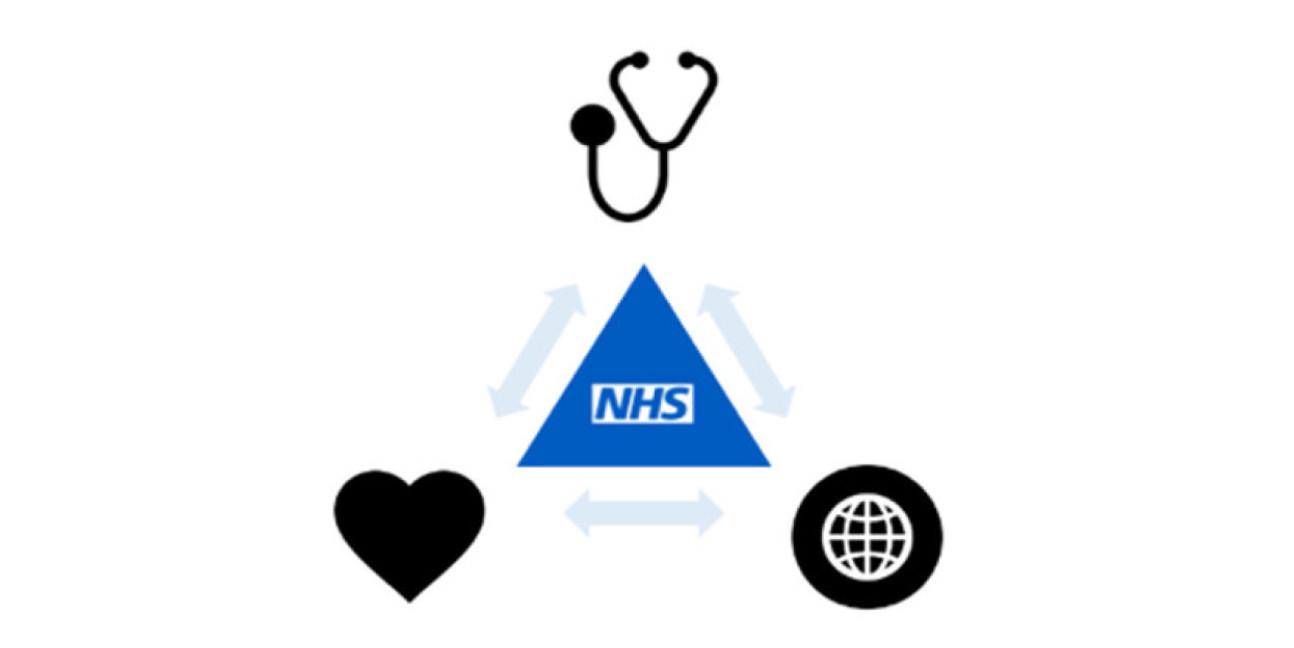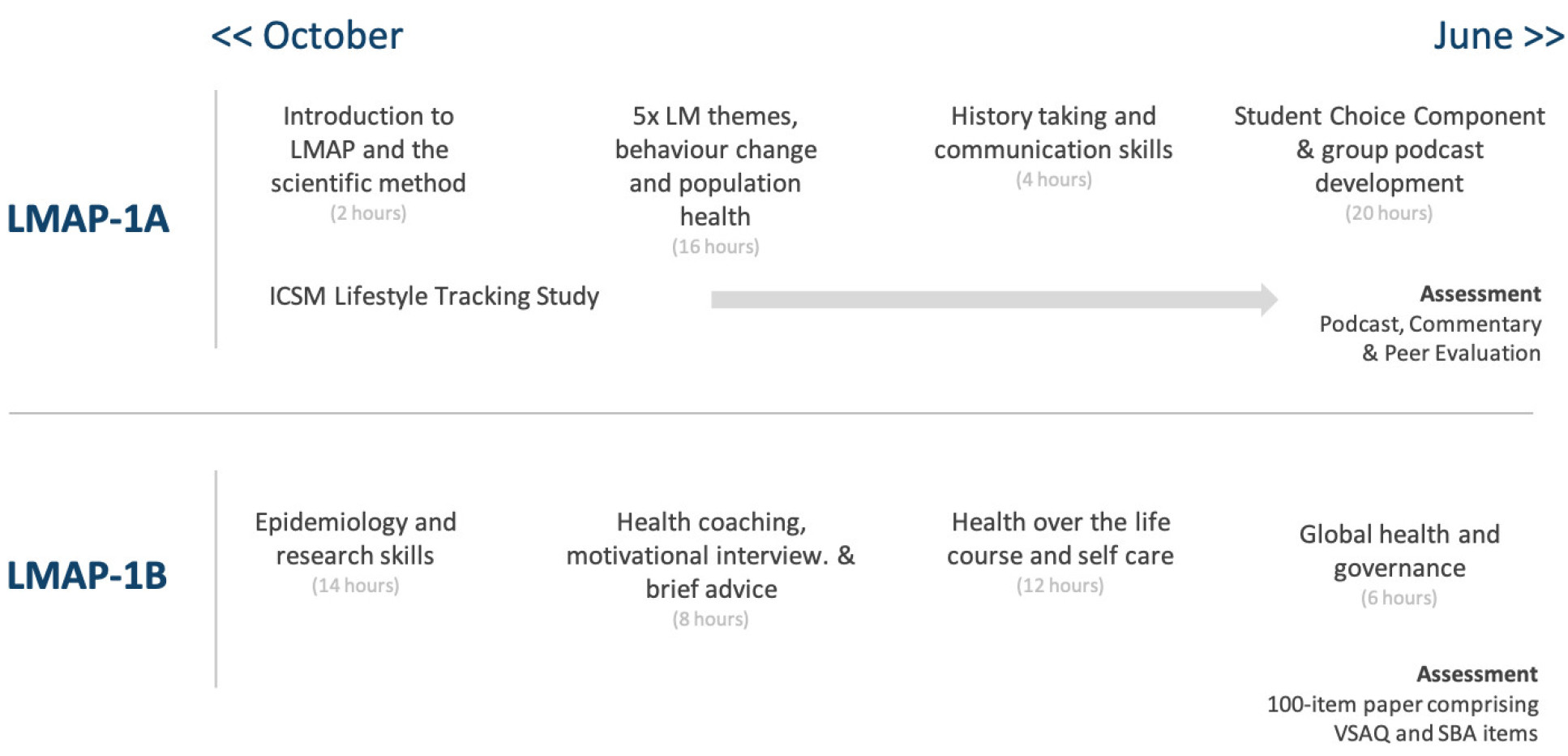
Lifestyle Medicine and Prevention (LMAP, pronounced EL-map) is an innovative pair of modules delivered for first and second year medical students at Imperial College School of Medicine. To find out more about the undergraduate medicine programme, please visit the MBBS/BSc Medicine course page.
The LMAP modules have been developed by the Undergraduate Public Health Education team within Imperial’s School of Public Health. Across the two years, they account for over 350 live teaching sessions every year delivered to more than 700 medical students.
The LMAP-1A module launched in 2019, in response to Imperial’s Learning and Teaching Strategy, which set out the College’s ambition for world-leading, evidence-based, and inclusive education. The LMAP modules provide this experience through a triple aim:

- Build within students the understanding, skills and behaviours that will improve their patients’ health through the practice of lifestyle medicine.
- Apply a population health mindset in order to recognise the broader context in which our patients live and NHS doctors work.
- Develop insights into students’ own health and wellbeing that will enable them to thrive in their medical training and career.
A wide array of learning methods are deployed in this module including interactive online learning, small group clinician-led teaching, actor-delivered narratives, real-time digital health tracking and authentic research experiences.
What is Lifestyle Medicine and Prevention?
Non-communicable diseases (NCDs) represent the leading cause of morbidity and mortality worldwide. Modifiable behavioural risk factors greatly contribute to the risk of NCDs. Lifestyle Medicine is an emerging area within clinical practice, which aims to improve the health and wellbeing of individuals by addressing lifestyle factors that contribute to ill health.
Within LMAP, lifestyle medicine teaching equips our students with the knowledge and skills required for multi-disciplinary, multi-system approaches that will address health and wellbeing challenges in the twenty-first century.
The first-year of LMAP revolves around five lifestyle themes with a focus on individual behaviour change using the COM-B approach (Michie 2011):
- Sleep
- Nutrition
- Physical activity
- Mental Health
- Financial wellbeing
Throughout the learning students are challenged to analyse how behavioural choices influence the health of their future patients, and then in-turn reflect on their own health behaviours.
The final term culminates in a summative assessment where students select one of the five themes for more in-depth study. As a group they produce a five-minute audio podcast that deploys real-life behaviour change approaches. An academic commentary and peer-evaluation are also required.
In the second-year module the biomedicine and social science issues are brought together and therapeutic options are introduced including self-care, social prescribing and wider societal interventions. Health coaching is also taught, alongside teaching blocks on epidemiology and global health.
